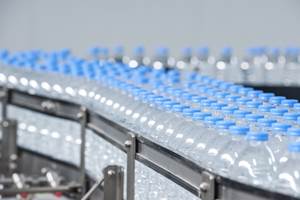Specializing in Success
The members of MoldMaking Technology's Editorial Advisory Board express their views on the benefits of specialization to a moldmaker.
Specialization can grow a moldmaker's business by defining him as an expert in his trade and as a result can give him the upper hand over the competition.
What are the benefits of specialization to a moldmaker?
Derek Beattie, owner of Polysurf Mold Design (Galt, CA), a consulting, mold design and solid modeling company. I think there are many benefits of specialization to a moldmaker. Moldmaking is very competitive and, although the basic mold concept remains the same, the technology and equipment required to meet the ever-increasing demands of a customer changes almost daily. In light of this, I think it is important for moldmakers - especially smaller businesses - to concentrate on specific areas of the industry while watching for future opportunities. In order to maintain a competitive edge, companies must focus on an area where they can develop a skilled workforce and streamline procedures that give them an advantage over other companies in the same domain. In this way, capital expenditures will be focused on the profitable areas, which will allow them to stay in business. It seems that if a company demonstrates a high level of ability in a certain area, even at a higher price, customers will give them business based on their confidence in the moldmaker's ability.
Walt Bishop, executive director of the Society of the Plastics Industry, Moldmakers' Division (Washington, D.C.). Specialization could mean a very defined market niche that no one else has the level of expertise in providing. The benefit of specializing is that there is limited competition, at least until competitors catch wind of the project. One other benefit is that specializing can define the capability of the moldmaker as a 'specialist,' thereby presenting him with additional opportunities.
Tom Fenton, toolroom manager for Minntech Corp. (Plymouth, MI), a medical device and solutions manufacturer specializing in dialysis solutions, dialysis reuse systems, Endoscope cleaning and reprocessing systems, hemofiltration and polysulfone fiber. In the case of closure molds and bottle molds it is very important. I prefer, however, to work with moldmakers who do not specialize. Moldmakers who have excellent vendors, whose processes and mold building methodology are streamlined, who are using solid modeling CAD and are training their personnel are an asset.
Joe Genc, engineering coordinator of PM Mold (Schaumburg, IL), a total service toolmaking company that engineers and builds plastic injection molds, compression molds and die cast dies. Specialization is one of the keys to American moldmakers being able to compete on a global basis. Years ago, we built molds, today we must be able to manufacture them - performing many skills on a production basis. This evolving process has brought on many changes that are helping to shorten the leadtimes while maintaining quality and a realistic price. Some examples are engineering department specialists who work with software that reduces 'repetitive busy work' and permits an almost instantaneous response to preliminary designs, changes and finished designs. Whether it is a CNC vertical mill, lathe, sinker EDM, wire EDM, surface grinder, cylindrical grinder or a boring mill, having a trained CNC specialist operating these machines can dramatically reduce the time to manufacture mold bases, cavities, cores and slides. The bench moldmaker needs to become a specialist. The old concept of the bench moldmaker - jack-of-all-trades and master of many - has evolved into a very specialized person who communicates directly with the customer's manufacturing engineer to save time and error.
Jean H. Kroes, owner of J.H. Kroes Consulting (Ottowa, Ontario), a consulting firm specializing in small business matters. Specialization can be a double-edged sword, but on the plus side I see the reduced investment in equipment that is not used for the specialized services - software or trial equipment - and the employment of an experienced staff. In addition, a company known for its specialization will reap the benefits of its reputation in that specialization, possibly edging out potential competitors who may not have that experience and reputation. You have the pleasure of seeing the hard-to-crack cases, the challenges - which bring spice into a dull work-life - and the company money. One also should not forget that a specialized shop would be able to handle jobs at a faster rate, due to the experience with that type of work. There should be more potential due to miscalculations or error, again increasing potential payback. The expected increase in quality also should warrant an increase in payment.
Jim Meinert, owner of Snider Mold (Mequon, WI), which builds large compression, injection, RIM and structural foam molds. The days of the OgeneralistO seem to be fading away. Successful shops do some things better than others and have a core business that they really focus on and then go up and down the value chain in that type or size of work. They do product design, prototyping or bridge tooling to get at the main core of the business - production tooling - and then continue up the value chain to include try-out of tooling, start-up assistance and preventative maintenance programs. They create a profile of the ideal customer and set their sights on that type of customer.
Illustrating this point is the recent trend towards ASP (application service providers), where you hire or use a specialist and pay per use. Another indication are service providers, like wire EDM houses, sinker EDM houses, deep hole drilling shops, mold polishers, mold designers, or product designers that specialize to succeed.
Terry Wohlers, president of Wohlers Associates, Inc. (Fort Collins, CO), an independent consulting firm that works closely with manufacturing organizations to uncover the best approaches to rapid product development. As a mold shop, the knowledge and skills of your employees do not need to be diverse. In other words, specialization can put a stop to working on projects that require a wide range of talents and resources. For example, it can prevent you from working on a small aluminum mold for prototypes one day and then a large and complex multi-cavity steel mold the next day. Specialization permits you to develop standards for material types and processes that can otherwise be difficult to achieve. If you specialize and you're good at what you do, you will become known for your specialty. If a manufacturer needs the type of mold that you specialize in, your company will bubble to the top of the list, assuming that you've established a presence and good reputation in the industry.
Related Content
What is Driving Mold Lifecycle Management Digitalization?
OEMs are looking to partner with suppliers to share and track data across the supply chain for advanced intervention and process management.
Read MoreMMT Chats: Solving Schedule and Capacity Challenges With ERP
For this MMT Chat, my guests hail from Omega Tool of Menomonee Falls, Wisconsin, who share their journey with using enterprise resource planning (ERP)—and their people—to solve their schedule and capacity load monitoring challenges.
Read MoreSteps for Determining Better Mold Prices
Improving your mold pricing requires a deeper understanding of your business.
Read MoreTackling a Mold Designer Shortage
Survey findings reveal a shortage of skilled mold designers and engineers in the moldmaking community, calling for intervention through educational programs and exploration of training alternatives while seeking input from those who have addressed the issue successfully.
Read MoreRead Next
Are You a Moldmaker Considering 3D Printing? Consider the 3D Printing Workshop at NPE2024
Presentations will cover 3D printing for mold tooling, material innovation, product development, bridge production and full-scale, high-volume additive manufacturing.
Read MoreHow to Use Strategic Planning Tools, Data to Manage the Human Side of Business
Q&A with Marion Wells, MMT EAB member and founder of Human Asset Management.
Read MoreHow to Use Continuing Education to Remain Competitive in Moldmaking
Continued training helps moldmakers make tooling decisions and properly use the latest cutting tool to efficiently machine high-quality molds.
Read More





















